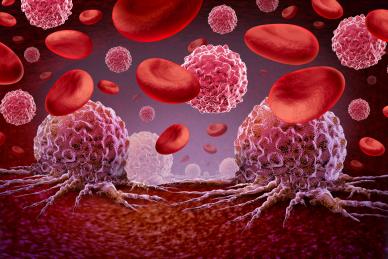Podcasts
Listen to our Clinical Conversations podcast series for episodes on infectious diseases.
Empowering medical excellence, shaping healthcare futures.
Article Author: Dr Katharine Relph is a registrar in Infectious Diseases and Internal Medicine
Infection doctors deal with all aspects of infection, from patient-facing ward, clinic, and consult work through to telephone advice, laboratory liaison, infection control and liaison with public health.
Infectious Diseases is a constantly evolving specialty, with new pathogens emerging and the epidemiology of existing diseases changing with global travel and climate change. This is reflected in the emphasis on continued learning and knowledge sharing, with many learning opportunities every week.
Laboratory bench training is a totally different aspect of medicine. You get to understand how the laboratory works, how to use it most effectively, and how to troubleshoot when things go wrong.
I enjoy interacting with the wide range of patients, from returning travellers and refugees to people who inject drugs. There’s something very satisfying about narrowing down a differential diagnosis through comprehensive history taking and targeted testing. I also really like the fact that almost all of the infections we see have effective treatment leading to cure or suppression.
Constantly evolving specialty with a culture of learning, development and research
Deal with conditions involving any organ of the body
Wide range of patients including returning travellers, refugees and migrants, people who use drugs
Most infections can be cured or effectively suppressed
Not very procedure-heavy
Deal with conditions involving any organ of the body!
There can be challenges with some patient groups including language barriers and engagement with healthcare
The level of detail in our history taking would put some people off!
| 09:00-11:00 | Infection Consult Round – seeing new patients with infections at the front door and supporting other specialty teams to manage their patients with complex infections |
| 11:00-13:00 | Ward work – reviewing inpatients on the infection ward, and seeing “ward attenders” (e.g. a returned traveller with a fever, well enough to be managed as an outpatient) |
| 13:00-14:00 | Lunchtime talk – a chance to get lunch with colleagues and learn something |
| 14:00-17:00 | Clinic – following up our patients with chronic infections e.g. blood borne viral infections |

Infectious Diseases, Microbiology and Virology are no longer stand-alone specialties – everyone will have a dual CCT. You can either do ID as a Group 2 specialty with Medical Microbiology (MM) or Medical Virology (MV) (recruited after 2 years of IM Stage 1 or 3 years of ACCS-IM); or you can do Infectious Diseases as a Group 1 specialty with Internal Medicine Stage 2 (IM) (recruited after completion of IMS1 or ACCS-IM).
All trainees complete two years of Combined Infection Training which involves clinical infection experience in an ID unit, infection-related outpatient clinics, laboratory and clinical work in microbiology and virology, and infection consult rounds. After that there are 2 years (ID/IM) or 3 years (ID/MM or ID/MV) of higher infection training (HIT).
There are also a limited number of posts in Tropical Medicine (TM). Like ID, this must be paired with IM/MM/MV. Training includes an indicative 12 months’ HIT in a resource-poor tropical setting, and at least 12 months of training must be in a UK based Tropical Medicine Centre (Liverpool, London, Birmingham).
Trainees are encouraged to take time out of programme to do research (clinical or laboratory based), teaching posts, or to gain clinical experience overseas
Get involved in an infection-related QI project, poster, or publication
Consider a Clinical Fellow or research post in an Infection specialty
Some people will do the DTM&H (Diploma in Tropical Medicine and Hygiene) prior to applying although this is not a requirement
Pick specialty placements where you will see infections if you can’t get an ID post during training – e.g. TB clinic when in Respiratory, Hepatitis B clinic when in Gastroenterology

Listen to our Clinical Conversations podcast series for episodes on infectious diseases.